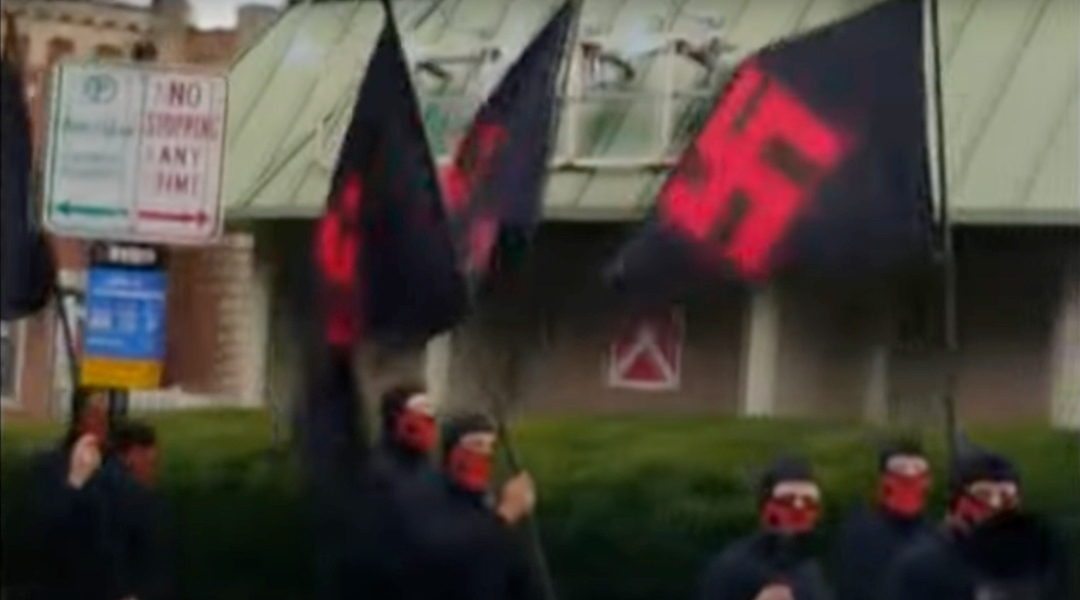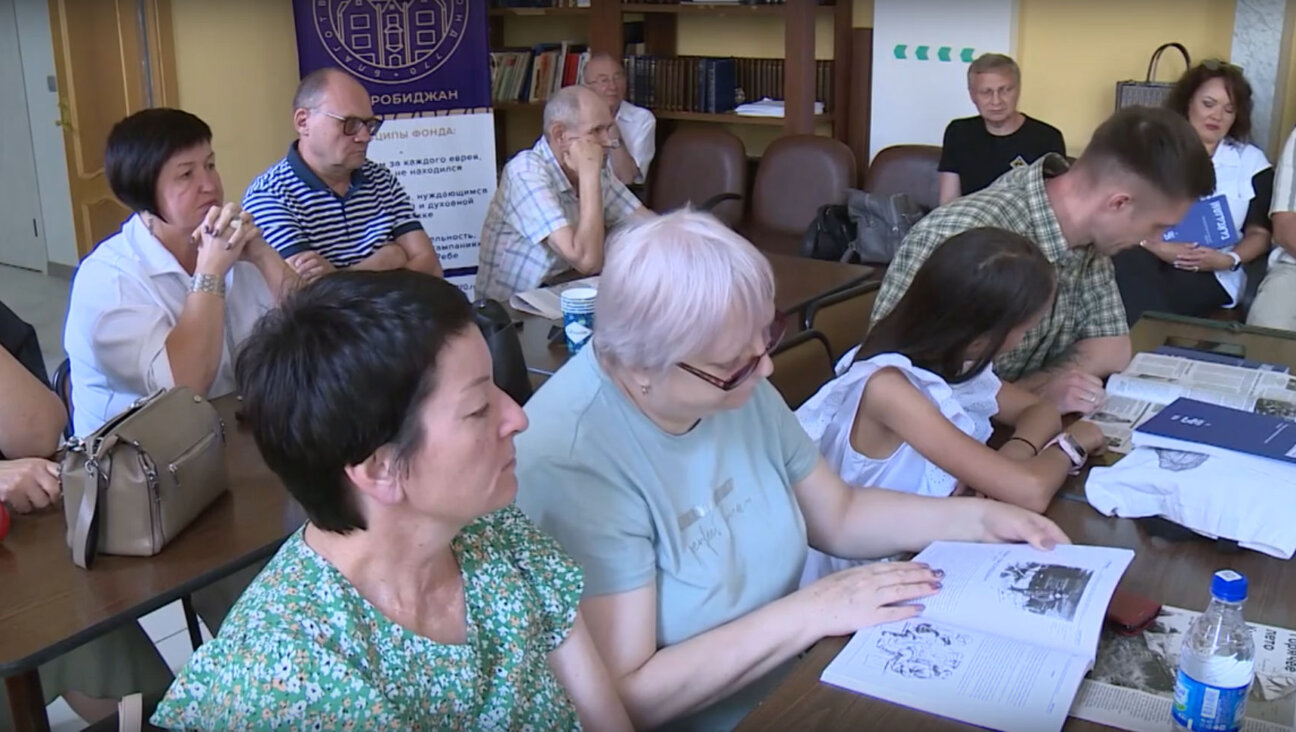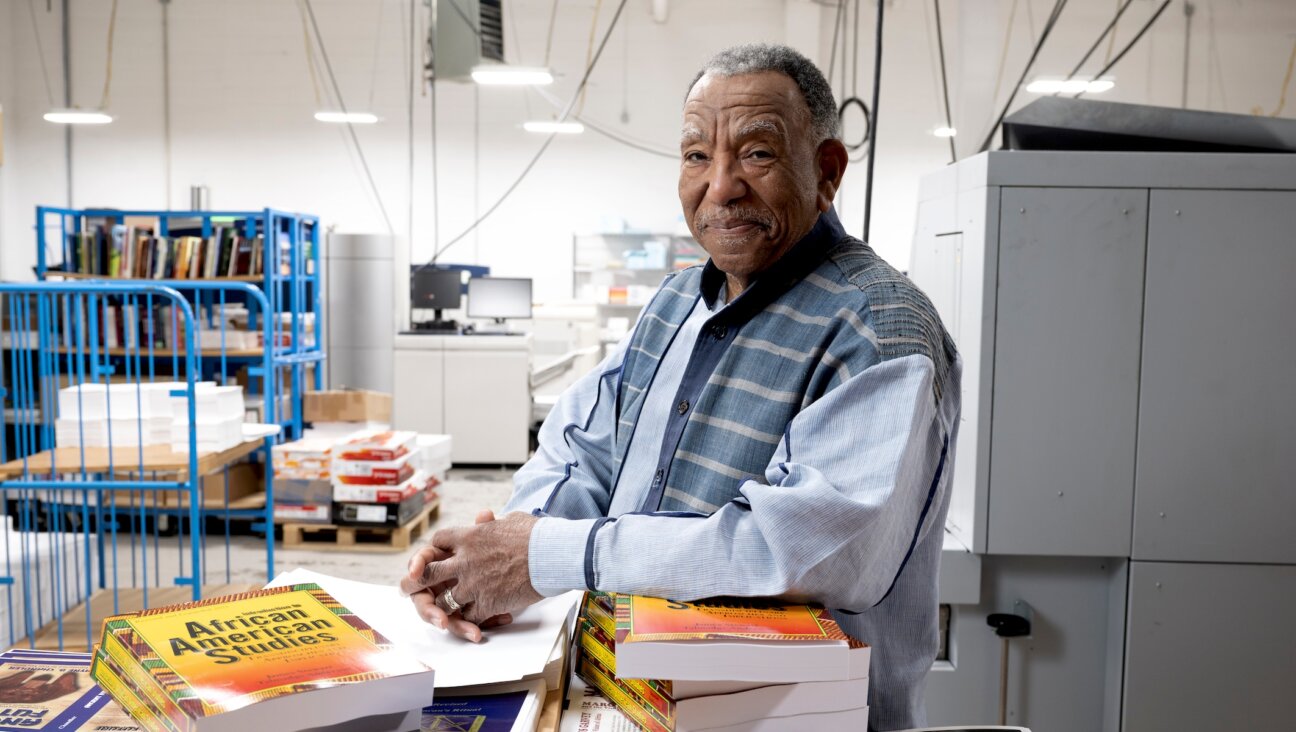Conference Focuses on U.S. Inaction During Holocaust
A fledgling institute for Holocaust studies is stepping up its efforts to advance the notion that Franklin Roosevelt and the Jewish community did not do enough to save European Jews during World War II. In the sensitive realm of Holocaust scholarship, a number of academics are already questioning the scholarly credentials of the new institute.
The David Wyman Institute held its first ever conference on Sunday, at the Ramaz Lower School, in Manhattan. The event marked a coming-out party of sorts for the Philadelphia-based institute, which until now was generally known for the frequent press releases and opinion columns generated by its director, Rafael Medoff.
The inaugural event was kicked off by a speech from Wyman himself, whose 1984, “The Abandonment of the Jews,” serves as an intellectual guiding light for the institute. On Sunday, the scholar excoriated that he characterized as the meager response of American and British officials to the killing of the Jews during World War II. “The leaders of the two great democracies did not want Jews to get out of Hitler’s Europe,” Wyman told the gathered educators and Jewish leaders.
Holocaust scholars praised the institute for drawing public attention to the growing body of research in an academic field that could have major implications for current American foreign policy and its approach to contemporary instances of ethnic cleansing. The institute has marshalled the support of sever high-profile figures for its advisory committee, including Nobel Laureate Elie Wiesel and seven congressmen, including New York Rep. Stephen Solarz, who sat through the entire all-day conference.
But several scholars said that the institute has struggled to move beyond the ideas of Wyman and welcome new research that does not jibe with Wyman’s dim view of American and Jewish communal inaction during the Holocaust.
“This is clearly only one pole of the debate,” said Michael Berenbaum, former director of the Research Institute of the U.S. Holocaust Memorial Museum, after examining the conference program, with its dearth of scholarly leaders in the field. “They’re providing a side that I have some sympathy with,” Berenbaum added, “but if you’re going to push forward, you need people who are doing brand-new research, clashing with ideas.”
The body of scholarship that has sprouted since Wyman’s book rarely has refuted Wyman’s central contention that the American government did little – outside of winning the larger war — to help European Jews. But there is a great deal of disagreement about how much more the government could have done and why it chose not to.
While Medoff, a protégé of Wyman, has written numerous letters to the editor slamming Roosevelt’s failures during the war, Leonard Dinnerstein, a scholar at the University of Arizona, says that recent research provides a much more ambiguous picture of Roosevelt’s inaction.
According to Dinnerstein, Roosevelt was facing one of the most antisemitic Congresses in American history, which meant that any overt effort for Jews could have lost Roosevelt political capital that he badly needed to lead the war effort.
“The more you read, the more you realize that Roosevelt’s options were limited,” said Dinnerstein, who wrote a glowing review of Wyman’s book when it first appeared, but was not invited to Sunday’s conference. “My sense is that Medoff’s reasoning is wishful belated thinking.”
Sunday’s conference was focused less on the scholarly battles over Wyman’s research than on the middle-school and high-school teachers in attendance. The event was marketed for educators, and hailed as the first major step in investigating and publicizing the research that has supported Wyman’s work.
The chancellor of the New York Schools, Joel Klein, invited all New York City teachers to the conference in his weekly newsletter. Only a handful were present at the afternoon breakout session for educators, but an instructional specialist for the board of education, Kyle Haver, was around for the entire day, and said the panels gave him much to bring back to discussions of school curricula.
“As in all historical work, this reminds us to recognize that there were different points of view that were silenced at the time,” Haver said.
Haver was making reference to an afternoon panel on the silence of the media during the Holocaust. The scholarly star of the panel, Northeastern University professor Laurel Leff, recently published a book about the unwillingness of the New York Times to make the Holocaust a front-page story — a particularly relevant topic in today’s debates about the media’s coverage of war.
Leff, though, was one of the few leading scholars in the field who was present for the day. One of the scholars on the institute’s academic council, University of Albany professor Mark Raider, praised Medoff’s hard work in almost single-handedly founding the institute. But Raider said Medoff has become overly concerned with bringing in big names, such as New York Times reporter Bernard Kalb, who spoke at Sunday’s event.
“Medoff has not used these scholars to really open wide the debate,” Raider said. “Instead he’s relying on these people to garner attention for the issues he thinks are paramount.”
Questions remain about exactly what contemporary ends the fledgling institute will direct its work toward. The institute releases an annual report of Holocaust denial worldwide. And Medoff is currently campaigning to have two streets in Jerusalem renamed after activists who worked to save Jewish refugees during World War II.
Beyond these acts of historical remembrance, said Deborah Dwork, director of the Strassler Family Center for Holocaust and Genocide Studies at Clark University, the institute could be instrumental in continuing the debate about the American response to more recent instances of ethnic cleansing.
“We thought of the 20th century as the age of genocide,” Dwork said, “but the 21st century seems to be emerging as another century of genocidal ideologies.”
The contemporary contexts in which it is proper to harness the history of the Holocaust, though, is a famously thorny question. In the Wyman Institute’s pamphlet, the only contemporary situation cited was the massive starvation of Jewish refugees from Ethiopia, many of whom were saved after the publication of Wyman’s book.. A few speakers during the conference mentioned the need to be more vigilant in responding to the rising tide of antisemitism around the world.
There was, however, almost no mention made of the American government’s response to more recent instances of genocide in Cambodia, Rwanda, and the former Yugoslavia. Medoff and the other institute leaders said that their institution has generally attempted to avoid controversies over contemporary foreign policy, opting to focus instead on scholarly work and education.
“Our feeling is that we are interested in teaching the true historical record,” said Bertram Korn, the associate director of the institute. “That is powerful enough, and people will draw their own conclusions. The record is what the record is.”
A message from our CEO & publisher Rachel Fishman Feddersen

I hope you appreciated this article. Before you go, I’d like to ask you to please support the Forward’s award-winning, nonprofit journalism during this critical time.
We’ve set a goal to raise $260,000 by December 31. That’s an ambitious goal, but one that will give us the resources we need to invest in the high quality news, opinion, analysis and cultural coverage that isn’t available anywhere else.
If you feel inspired to make an impact, now is the time to give something back. Join us as a member at your most generous level.
— Rachel Fishman Feddersen, Publisher and CEO






















